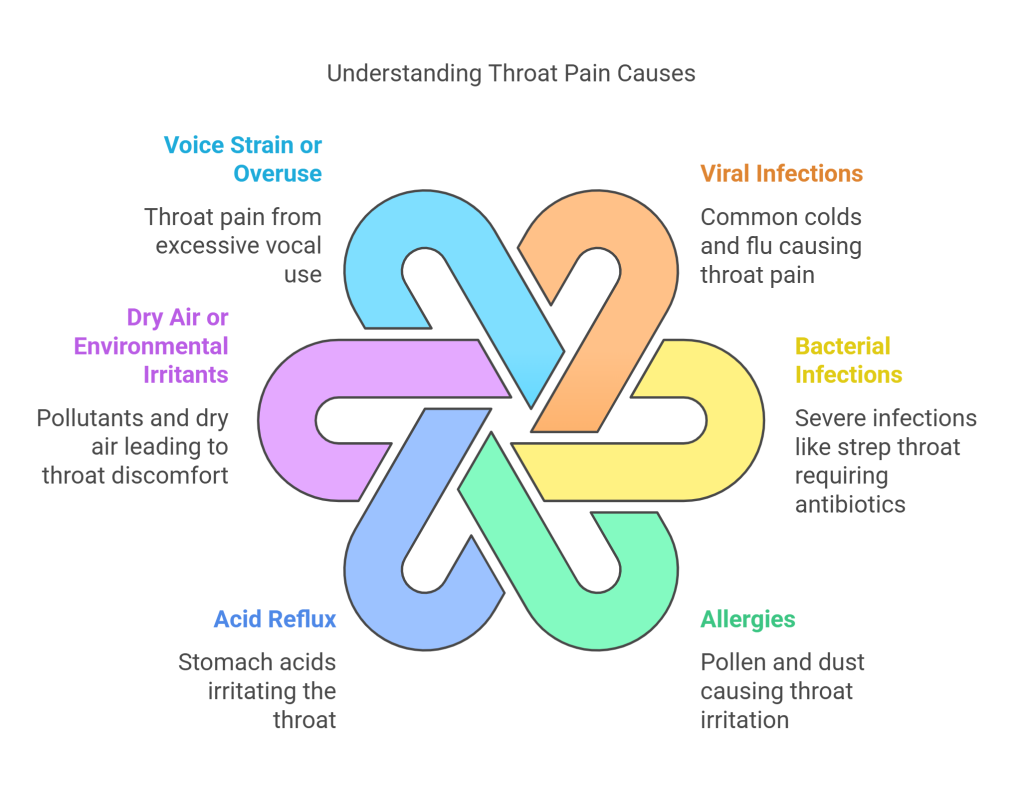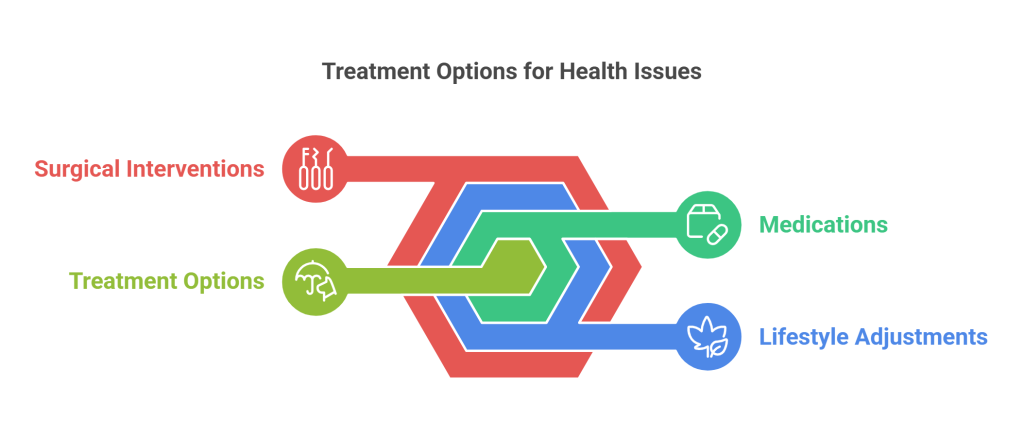Throat pain is a frequent complaint in medical practices and can stem from a variety of conditions, each requiring a different approach to treatment. Understanding the specific cause of throat pain is crucial to effectively addressing it. This comprehensive guide explores the common causes of throat pain, how they are diagnosed, and which medical specialist is best suited to treat them.
Understanding Throat Pain
Throat pain, or pharyngitis, can manifest as scratchiness, irritation, or severe pain, impacting daily activities like swallowing and speaking. While it’s a common symptom, the underlying causes can vary greatly, from infections to chronic diseases.
Common Causes of Throat Pain

1. Viral Infections
Viral infections, such as the common cold, influenza, and mononucleosis, are the most prevalent causes of throat pain. Symptoms often include a sore throat, runny nose, cough, fatigue, and fever. These infections typically resolve on their own, but supportive care can help alleviate symptoms. Drinking fluids, rest, and over-the-counter pain relievers are common recommendations.
2. Bacterial Infections
Bacterial infections like strep throat and tonsillitis cause more severe throat pain, often accompanied by high fever, swollen lymph nodes, and white patches on the tonsils. Antibiotics are necessary to treat these infections and prevent complications such as rheumatic fever. A primary care physician can initiate treatment, but if complications arise, referral to an ENT specialist may be necessary.
3. Allergies
Allergic reactions to pollen, dust, pets, and molds can lead to throat irritation. Allergies can cause symptoms such as itchy eyes, sneezing, nasal congestion, and a sore throat resulting from postnasal drip. Treatment involves antihistamines, nasal sprays, and avoiding known allergens. Allergists are specialists who can provide comprehensive allergy testing and immunotherapy.
4. Acid Reflux (GERD)
Acid reflux, or GERD, can irritate the throat when stomach acids rise back into the esophagus. Symptoms include a persistent sore throat, hoarseness, a feeling of a lump in the throat, and heartburn. Lifestyle changes such as modifying diet, reducing meal sizes, and avoiding late-night eating are crucial. A gastroenterologist is the right specialist to consult for chronic cases where medication or further intervention may be necessary.
5. Dry Air or Environmental Irritants
Dry indoor air, particularly during winter, along with pollutants and smoke, can dry out the throat, leading to irritation and pain. Humidifiers can help add moisture to the air, and avoiding smoking or polluted environments can prevent irritation. If symptoms are severe or persistent, consulting an ENT specialist might be necessary to rule out other underlying causes.
6. Voice Strain or Overuse
Professionals who use their voice extensively, like teachers, singers, and public speakers, often experience throat pain due to overuse or strain. Vocal rest is usually recommended, along with hydration and possibly consulting a speech-language pathologist. ENT specialists can also provide guidance on vocal cord care and treatment if there are signs of nodules or other vocal cord damage.
Diagnosing Throat Pain
The diagnosis begins with a detailed medical history and a physical exam. Doctors may use throat swabs for cultures to identify bacterial infections, blood tests for viral markers, and possibly imaging studies to view the throat and surrounding structures if there is concern about more serious conditions.
Choosing the Right Doctor
Choosing the right specialist depends on the underlying cause of the throat pain:
- Primary Care Physician: Good for initial evaluation and treatment of general infections.
- ENT Specialist: Best for chronic throat issues, structural problems, or complicated infections.
- Allergist: Ideal for throat pain related to allergic reactions.
- Gastroenterologist: Necessary for issues stemming from acid reflux and other digestive system disorders.
Treatment Options

Treatment varies based on the cause but generally includes:
- Medications: Antibiotics for bacterial infections, antihistamines for allergies, and antacids or proton pump inhibitors for acid reflux.
- Lifestyle Adjustments: Changes in diet, increased hydration, and modifications in daily habits to reduce reflux or allergen exposure.
- Surgical Interventions: In severe cases, such as for recurrent tonsillitis or significant structural issues, surgery might be recommended by an ENT specialist.
Prevention Tips
Preventive measures include staying hydrated, washing hands frequently to prevent infections, avoiding allergens, and using humidifiers to keep the air moist during dry months.
Conclusion
Understanding the specific causes of throat pain is key to effective treatment. Whether it’s managing symptoms at home or seeking specialized care from professionals like the best nephrologist in Ranchi for related conditions, the right approach can significantly improve your quality of life and prevent further complications. Always consult with a healthcare provider if you experience persistent or severe throat pain to ensure a comprehensive evaluation and appropriate treatment.
This expanded version includes more detailed explanations, preventive tips, and a broader scope of professional advice, which should provide a thorough understanding of throat pain causes and treatments.
.svg)










